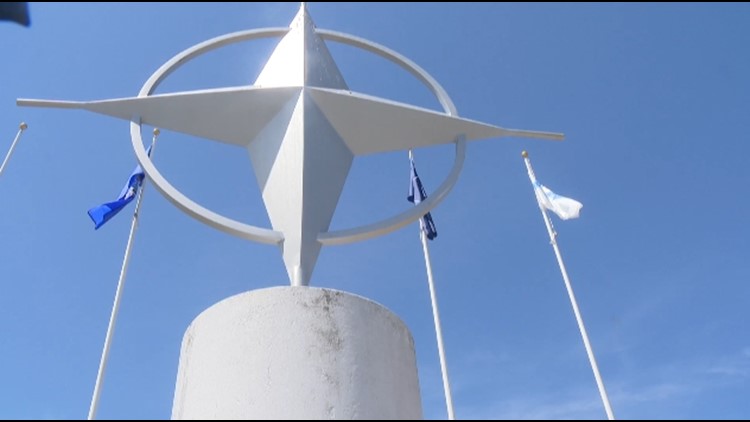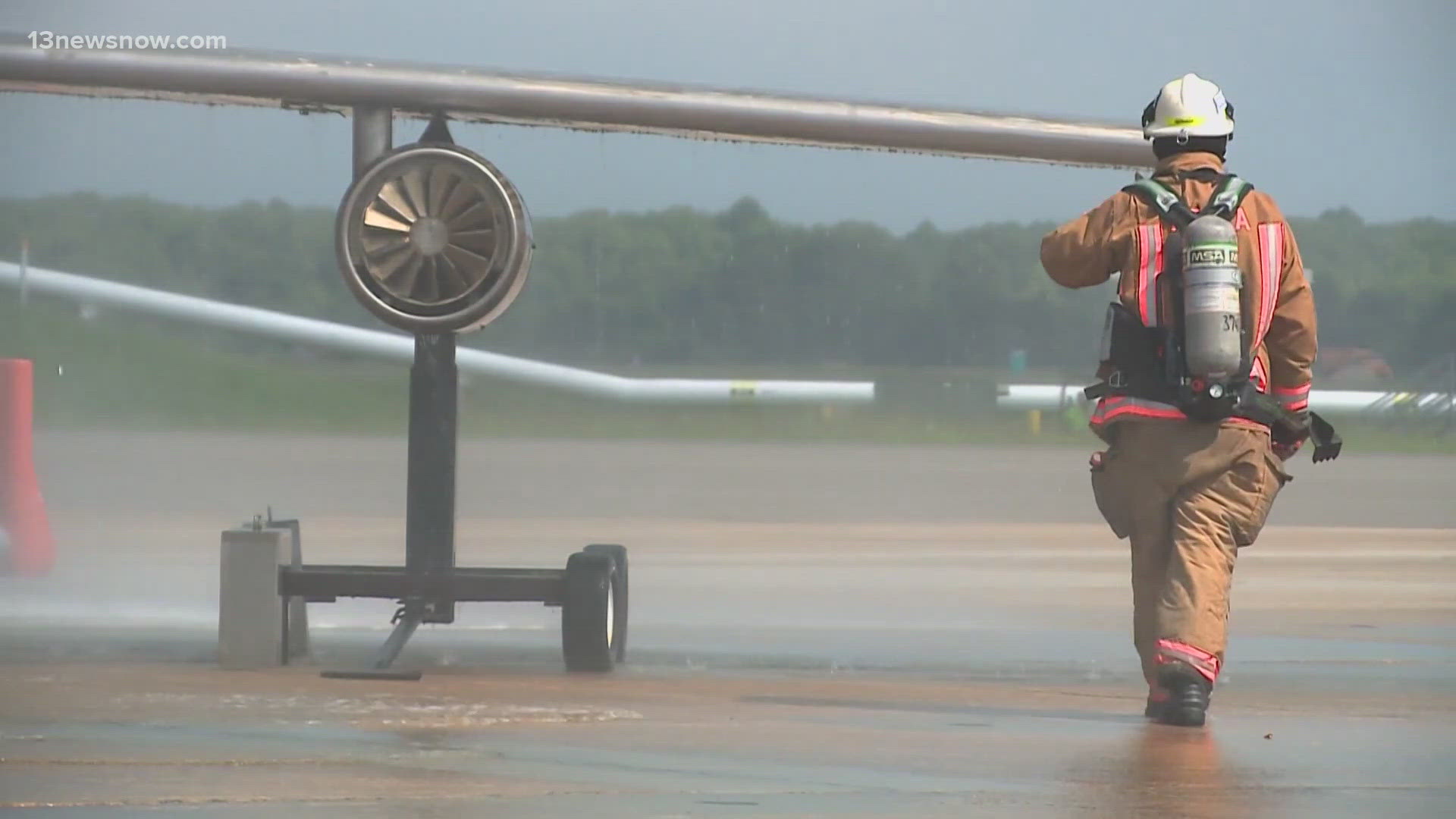WASHINGTON — One day after passing in the Senate, the Fiscal Year 2024 National Defense Authorization Act (NDAA) passed in the House on Thursday.
The vote was 310 to 118.
One provision in the measure prohibits any president from unliterally withdrawing the United States from NATO without receiving Congressional approval first.
The bill's co-sponsor, Sen. Tim Kaine (D-Virginia), said maintaining the alliance -- particularly in light of Russia's aggression in Ukraine, is crucial.
"Passing this provision is a loud message to our NATO allies that support for NATO isn't just dependent on a Presidential administration, but the Congressional support is strong," he said Thursday.
Something that's missing in the NDAA? Future funding for Ukraine.
To date, the United States has spent $111 billion supporting Ukraine since the Russian invasion began in February 2022.
A Pew Research Center study published last week showed that 48% of Republicans and Republican-leaning independents say the U.S. is giving too much aid to Ukraine.
Now, some House and Senate Republicans are demanding that before they authorize any more Ukraine-directed money, the U.S. must make major changes to border and immigration policies.
Sen. Mark Warner (D-Virginia) conceded that the border is, in his words, "a mess."
On Thursday, though, Warner said that Ukraine is urgent, and he "prays" that his colleagues approve Biden's supplemental aid package before Christmas.
"And for us to think about deserting them now would be a stain on our country's honor. And the ramifications it would have all of our allies, particularly NATO, it would say that America's word is not worth very much," Warner said.
Both Warner and Kaine voted for the bill in the Senate on Wednesday.
As for Thursday's NDAA vote in the House, it had bipartisan support from the entire Hampton Roads delegation.
Republicans Jen Kiggans and Rob Wittman, and Democrats Bobby Scott and Jennifer McClellan all voted "yes."
The bill heads now to Biden's desk.
In a statement, Scott said:
“The FY24 NDAA provides a well-deserved pay raise and support to servicemembers, guarantees the defense of the American people, and invests in our national security. As the representative of Hampton Roads and a member of the conference committee, I am proud that the final bill supports our region’s shipbuilding industrial base with provisions that include one Columbia-class submarine and two Virginia-class submarines as well as authorizing a multi-year procurement for the Virginia-class submarine program and full funding for the Ford Class aircraft carrier program. The conference report also includes an authorization for the AUKUS agreement, allowing for a trilateral security partnership between the United States, the United Kingdom, and Australia that will authorize the transfer and sale of up to three Virginia-class submarines to Australia. This will strengthen the naval presence of a key ally in the region and create jobs in Newport News. It additionally includes a deadline for a report I requested in last year’s NDAA, focused on efforts made to prevent and respond to deaths by suicide in the Navy."
In a statement, Kiggans said:
“I came to Congress on a mission to restore strength in our military, and this bill takes a big step toward achieving that goal,. At a time when our great nation is facing threats from every corner of the globe, this critical legislation refocuses the Department of Defense on our servicemembers, our warfighting capabilities, and our global deterrence initiatives. I’m very pleased that members on both sides of the aisle recognize these areas are – and always will be – where we need to focus. “I’m incredibly proud to have secured several wins in this year’s NDAA that will directly benefit the servicemembers and military families in Hampton Roads, across the country, and around the world. My provisions in this bill will positively impact our servicemembers’ quality-of-life, increase access to mental healthcare, and explore improvements to our nation’s shipbuilding and ship repair capabilities. As a third-generation veteran, military spouse, and mother to children who serve, I will always be the loudest voice for our military men and women in Congress!”
In a floor speech, Wittman said:
"War is on our doorstep. With the Russian invasion of Ukraine, Iran's proxy conflict with Israel, North Korea's long range ballistic missile development, and China's belligerence in the South China Sea, an axis of evil is rising again. These nations seek to challenge the world order that has provided our nation's prosperity since World War II. But we are answering the call with this year's NDAA. We drafted this bill to address these growing national security threats, while taking care of our servicemembers. This bill increases the defense topline to pace with our national security challenges. This bill provides a 5.2% service member pay increase, the largest increase in 20 years. This bill provides a path for COVID vaccine servicemembers to be reinstated. This bill curbs a reckless administration's diversity, equity and inclusion appetite that detracts from warfighting. This bill provides... needed aircraft and ships, preparing us to deter conflict before 2030. My friends, this is the right bill at the right time. We need it urgently to deter catastrophic conflict. "
McClellan said in a statement:
"As a member of the House Armed Services Committee, I am proud of the work we accomplished to pass this crucial piece of legislation. Our Commonwealth is home to over 130,000 active-duty servicemembers and over 700,000 veterans, who deserve the full support of the federal government. This year’s NDAA represents a bipartisan compromise that protects our national security priorities, advances military development and innovation, and supports our servicemembers, veterans, and their families. Despite House Republicans’ attempts to undermine Diversity, Equity & Inclusion initiatives, attack our LGBTQ+ service members, and restrict reproductive health care, congressional Democrats were able to successfully remove their poison pill policies.”



